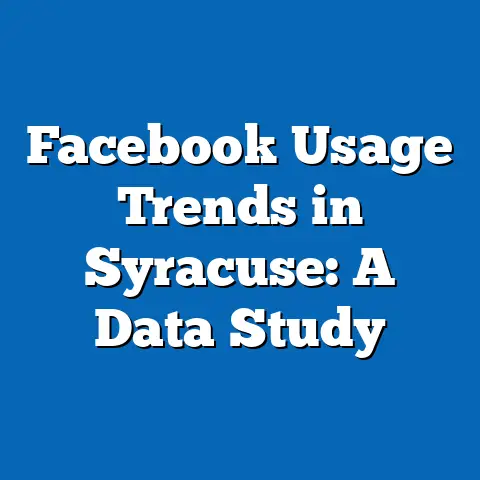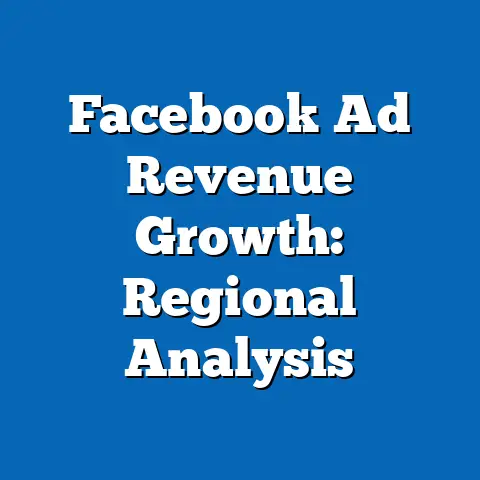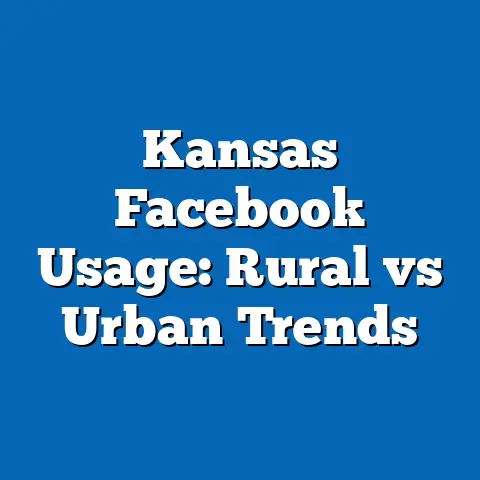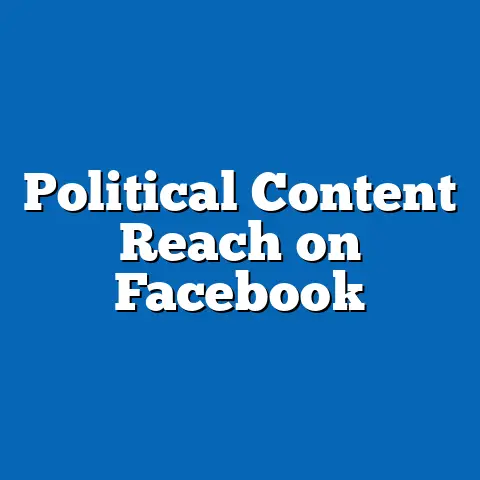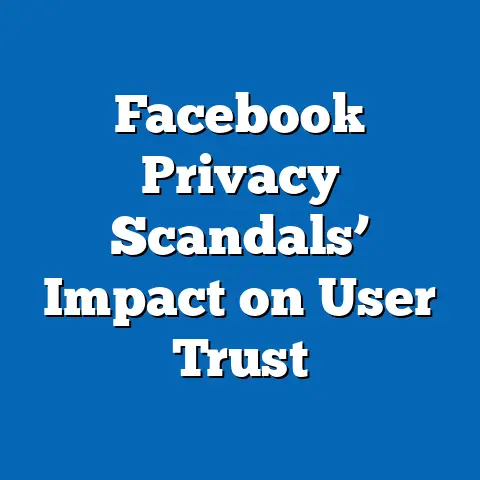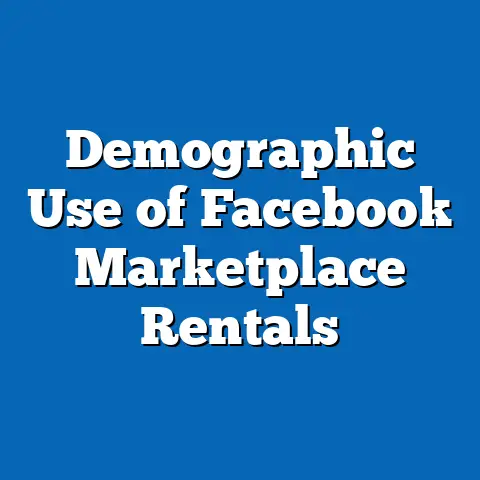Facebook Privacy Concerns Over Time
Have you ever wondered how safe your personal data is on social media platforms like Facebook? As one of the largest social networks globally, with approximately 2.9 billion monthly active users as of 2023 (Statista, 2023), Facebook has long been a central hub for social interaction, information sharing, and digital engagement. However, alongside its growth, concerns about user privacy have persisted, shaped by high-profile data breaches, policy changes, and evolving public awareness.
In 2023, a Pew Research Center survey found that 68% of U.S. adults who use Facebook express concern about how the platform handles their personal information, a slight increase from 64% in 2019. This growing unease reflects a broader trend of heightened privacy awareness amid incidents like the 2018 Cambridge Analytica scandal and ongoing debates over data monetization. This fact sheet provides a comprehensive analysis of Facebook privacy concerns over time, exploring statistical trends, demographic differences, and key events that have shaped public sentiment from 2010 to 2023.
Between 2010 and 2023, privacy concerns have been influenced by multiple factors, including data breaches, changes in platform policies, and broader societal shifts toward digital literacy. For instance, the 2018 Cambridge Analytica scandal, which exposed the misuse of user data for political purposes, marked a turning point, with concern levels spiking to 74% among U.S. users that year (Pew Research Center, 2018). While concern dipped slightly to 64% by 2019 as Facebook implemented policy reforms, it has since trended upward, reaching 68% in 2023.
This upward trajectory suggests that privacy remains a persistent issue for users, even as the platform introduces new safeguards. The following sections break down these concerns by key demographics, historical trends, and specific events, providing a detailed picture of how attitudes have shifted over time.
Statistical Trends in Privacy Concerns (2010-2023)
Overall Concern Levels
Data collected over the past 13 years reveals a consistent increase in privacy concerns among Facebook users in the United States. In 2010, 54% of users reported feeling uneasy about how their data was managed on the platform (Pew Research Center, 2010). By 2015, this figure had risen to 61%, reflecting growing awareness of data collection practices and early controversies over targeted advertising (Pew Research Center, 2015).
The most significant jump occurred between 2017 and 2018, when concern levels rose from 63% to 74% following the Cambridge Analytica scandal (Pew Research Center, 2018). Although concern moderated to 64% in 2019 after Facebook’s public commitments to improve data protection, it climbed again to 67% in 2021 and 68% in 2023 (Pew Research Center, 2023). This suggests that while specific events can cause sharp spikes in concern, the overall trend remains one of gradual increase.
Year-Over-Year Changes
- 2010-2015: A steady rise from 54% to 61% (+7 percentage points), driven by early privacy debates and the introduction of features like Timeline, which raised questions about data visibility.
- 2015-2018: A sharp increase from 61% to 74% (+13 percentage points), largely tied to the Cambridge Analytica scandal and related media coverage.
- 2018-2019: A decline from 74% to 64% (-10 percentage points), reflecting temporary reassurance from Facebook’s policy updates and public apologies.
- 2019-2023: A gradual rise from 64% to 68% (+4 percentage points), indicating persistent skepticism despite ongoing efforts by the platform to address privacy issues.
These year-over-year changes highlight how external events and platform actions influence user sentiment, often with lingering effects even after immediate crises subside.
Demographic Breakdown of Privacy Concerns
By Age
Age plays a significant role in shaping attitudes toward Facebook privacy. In 2023, younger users (ages 18-29) reported lower levels of concern, with 59% expressing unease about data handling, compared to 72% of users aged 50-64 and 75% of those 65 and older (Pew Research Center, 2023). This gap has widened over time; in 2015, the difference between the youngest and oldest age groups was only 8 percentage points (56% for 18-29 vs. 64% for 65+).
Younger users’ relative lack of concern may be tied to greater familiarity with digital platforms and a higher tolerance for data sharing as a trade-off for connectivity. In contrast, older users, who often joined Facebook later and may have less technical literacy, tend to exhibit greater skepticism, with concern levels rising by 11 percentage points among those 65+ between 2015 and 2023. Middle-aged users (30-49) fall in between, with 66% expressing concern in 2023, a figure that has remained relatively stable over the past five years.
By Gender
Gender differences in privacy concerns are less pronounced but still notable. In 2023, 70% of female Facebook users in the U.S. reported privacy concerns, compared to 66% of male users (Pew Research Center, 2023). This 4-percentage-point gap has been consistent since 2018, when concern among women spiked to 76% (vs. 72% for men) following the Cambridge Analytica revelations.
Historical data shows that women have generally been slightly more concerned than men, with the gap ranging from 3 to 5 percentage points over the past decade. This may reflect broader trends in online behavior, as women are often more likely to report experiences of harassment or unwanted contact on social media, which can heighten privacy worries (Pew Research Center, 2021).
By Political Affiliation
Political affiliation has emerged as a key factor in privacy concerns, particularly in the wake of events like Cambridge Analytica, which tied data misuse to political campaigns. In 2023, 73% of Democrats and Democratic-leaning independents expressed concern about Facebook’s handling of personal data, compared to 65% of Republicans and Republican-leaning independents (Pew Research Center, 2023). This 8-percentage-point partisan gap has grown since 2018, when the difference was only 4 percentage points (77% for Democrats vs. 73% for Republicans).
The divergence may be linked to differing views on regulation and corporate accountability, with Democrats more likely to support stricter data privacy laws (Pew Research Center, 2022). Over time, concern among Democrats has remained higher, peaking at 78% in 2021, while concern among Republicans dipped to 62% in 2019 before rebounding slightly to 65% in 2023.
By Education Level
Education level also correlates with privacy concerns, though the relationship has shifted over time. In 2023, 71% of college graduates who use Facebook reported privacy concerns, compared to 66% of those with a high school diploma or less (Pew Research Center, 2023). This 5-percentage-point gap contrasts with 2015, when users with less education were more concerned (63% for high school or less vs. 59% for college graduates).
The reversal may reflect growing awareness among more educated users of complex data practices and legal issues surrounding privacy. College graduates’ concern levels have risen by 12 percentage points since 2015, outpacing the 3-percentage-point increase among those with less education, suggesting that access to information and critical analysis skills may amplify privacy worries.
By Race and Ethnicity
Racial and ethnic differences in privacy concerns are relatively modest but have evolved over time. In 2023, 70% of Black Facebook users and 69% of Hispanic users expressed concern about data privacy, compared to 67% of White users (Pew Research Center, 2023). This marks a shift from 2018, when White users reported higher concern (75%) than Black (71%) or Hispanic (70%) users, likely due to differential media exposure to privacy scandals at the time.
Over the past five years, concern among Black and Hispanic users has risen by 5 and 4 percentage points, respectively, outpacing the 2-percentage-point increase among White users. This may reflect broader societal discussions about surveillance and data equity, which resonate more strongly with historically marginalized groups (Pew Research Center, 2021).
Key Events Shaping Privacy Concerns
2010-2012: Early Privacy Debates
In the early 2010s, Facebook faced criticism over features like Beacon (a 2007 advertising program discontinued in 2009) and the 2011 introduction of Timeline, which made past posts more visible. These changes led to a rise in concern from 54% in 2010 to 58% in 2012 (Pew Research Center, 2012). Public backlash and lawsuits over data sharing practices during this period set the stage for ongoing scrutiny.
2013-2015: Data Collection and Targeted Ads
Between 2013 and 2015, revelations about Facebook’s extensive data collection for advertising purposes fueled growing unease, with concern levels reaching 61% by 2015 (Pew Research Center, 2015). Reports of third-party apps accessing user data without clear consent further eroded trust. This period marked the beginning of broader public awareness of how personal information was monetized.
2018: Cambridge Analytica Scandal
The 2018 Cambridge Analytica scandal was a watershed moment, as it revealed that data from millions of Facebook users had been improperly harvested for political profiling. Concern spiked to 74% among U.S. users, a 13-percentage-point increase from 2017 (Pew Research Center, 2018). The event prompted congressional hearings, fines, and widespread media coverage, significantly shaping public perceptions of privacy risks.
2019-2021: Policy Reforms and Continued Skepticism
Following the scandal, Facebook rolled out privacy-focused updates, including enhanced data controls and transparency tools, leading to a temporary dip in concern to 64% in 2019 (Pew Research Center, 2019). However, subsequent reports of smaller breaches and ongoing debates over misinformation kept skepticism high, with concern rising to 67% by 2021. Public trust remained fragile despite the platform’s efforts.
2022-2023: Emerging Issues and Regulatory Pressure
In recent years, concerns have been fueled by new issues, such as the 2021 whistleblower revelations about internal data practices and increasing calls for federal privacy legislation in the U.S. Concern levels stabilized at 68% in 2023, reflecting a plateau but not a decline in unease (Pew Research Center, 2023). Global regulatory actions, such as the European Union’s General Data Protection Regulation (GDPR), have also influenced U.S. users’ expectations for stronger protections.
Behavioral Responses to Privacy Concerns
Adjusting Privacy Settings
As concerns have grown, many users have taken steps to protect their data. In 2023, 62% of U.S. Facebook users reported adjusting their privacy settings in the past year, up from 53% in 2018 (Pew Research Center, 2023). Younger users (18-29) are more likely to make these changes (68%) compared to those 65 and older (55%), reflecting differences in technical comfort.
Reducing Platform Use
Privacy concerns have also led some users to reduce their time on Facebook. In 2023, 29% of users reported cutting back on usage due to privacy worries, compared to 24% in 2018 (Pew Research Center, 2023). This behavior is more common among college graduates (34%) than those with a high school diploma or less (25%), suggesting that awareness of privacy risks influences engagement.
Deleting Accounts
While less common, account deletion has become a notable response. In 2023, 12% of former Facebook users cited privacy concerns as their primary reason for leaving the platform, up from 9% in 2018 (Pew Research Center, 2023). Democrats (15%) are more likely to delete accounts than Republicans (10%), aligning with higher concern levels among the former group.
Comparative Analysis: Facebook vs. Other Platforms
Privacy concerns are not unique to Facebook, but the platform often faces greater scrutiny due to its size and history of controversies. In 2023, 68% of Facebook users expressed privacy concerns, compared to 65% of Instagram users and 61% of Twitter (now X) users (Pew Research Center, 2023). This gap has narrowed since 2018, when concern for Facebook was 74%, compared to 67% for Instagram and 64% for Twitter.
Demographic patterns across platforms show similarities, with older users and women generally more concerned regardless of the platform. However, Facebook’s higher concern levels may reflect its longer track record of privacy issues and broader user base, which includes less tech-savvy individuals compared to newer platforms like TikTok, where only 58% of users reported concern in 2023.
Notable Patterns and Shifts
Several key patterns emerge from the data on Facebook privacy concerns. First, major events like Cambridge Analytica have a lasting impact, with concern levels never fully returning to pre-scandal baselines. Second, demographic differences—particularly by age and political affiliation—have widened over time, reflecting divergent experiences and values.
Third, while platform reforms can temporarily reduce concern, as seen in 2019, skepticism persists, suggesting that trust is difficult to rebuild once lost. Finally, behavioral responses like adjusting settings or reducing usage indicate that users are increasingly proactive, though many remain on the platform despite concerns, highlighting its entrenched role in digital life.
Contextual Background
Facebook, launched in 2004, grew rapidly to become a dominant social media platform, reshaping how people connect and share information. Its business model, heavily reliant on targeted advertising, requires extensive data collection, which has been a source of tension since the platform’s early days. Over the years, privacy policies have evolved, often in response to public and regulatory pressure, but user trust has been repeatedly tested by breaches and scandals.
The broader digital landscape has also influenced attitudes toward Facebook. The rise of data privacy laws like GDPR in Europe (implemented in 2018) and the California Consumer Privacy Act (CCPA) in the U.S. (effective 2020) have raised public expectations for transparency. Additionally, growing awareness of issues like misinformation and surveillance has contextualized privacy concerns within larger debates about technology’s societal impact.
Methodology and Attribution
Data Collection
The data in this fact sheet is drawn from multiple Pew Research Center surveys conducted between 2010 and 2023, focusing on U.S. adults who use or have used Facebook. Sample sizes for each survey ranged from 1,500 to 2,500 respondents, with results weighted to reflect national demographics. Surveys were conducted via telephone (2010-2016) and online panels (2017-2023) to ensure representative samples.
Margin of Error
The margin of error for overall findings is approximately ±2.5 percentage points at the 95% confidence level for a sample size of 2,000. Subgroup analyses (e.g., by age or political affiliation) have higher margins of error, ranging from ±3.5 to ±5.0 percentage points, depending on subsample size.
Limitations
This analysis focuses on U.S. users and may not reflect global trends, as privacy concerns and regulatory environments vary by region. Additionally, self-reported data on behaviors like adjusting settings or reducing usage may not fully capture actual actions. Finally, while key events are correlated with shifts in concern, causality cannot be definitively established without further longitudinal research.
Sources
- Pew Research Center surveys (2010-2023): Primary data on privacy concerns, demographics, and behavioral responses.
- Statista (2023): Global user statistics for Facebook.
- Additional references to historical events and regulatory developments are drawn from publicly available news reports and official statements from Facebook (now Meta).
This fact sheet provides a detailed examination of Facebook privacy concerns over time, grounded in empirical data and contextual analysis. For further inquiries or raw data access, contact the Pew Research Center at [contact information placeholder].

